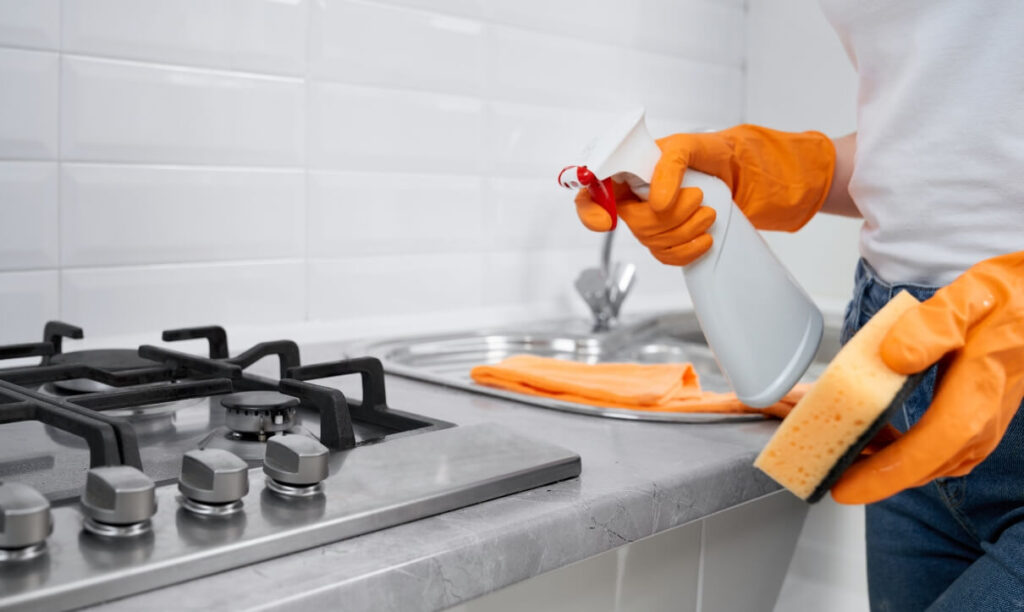
A tidy and well-maintained kitchen is more than just pleasing to the eye; it significantly improves your cooking experience. By caring for your kitchen tools and appliances, you enhance their efficiency and lifespan, making meal preparation smoother and more enjoyable.
This guide shares practical strategies for maintaining kitchen essentials, helping you create a more functional and inspiring cooking space.
How Maintenance Enhances Cooking Efficiency
Caring for kitchen tools isn’t just about upkeep—it’s transformative. Sharp knives, smoothly running appliances, and clean surfaces elevate your cooking experience, making each step, from preparation to plating, a breeze.
Rather than constantly replacing items, maintaining your existing tools saves money and creates a more efficient and satisfying kitchen environment.
Tips for Maintaining Cutting Tools
Keeping Knives Sharp and Safe
A well-maintained knife is essential for precision and safety.
- Honing vs. Sharpening: Understand the difference. Honing realigns the blade’s edge and should be done regularly, while sharpening involves removing material from the blade and is needed less frequently.
- Proper Storage: Store knives in a knife block or on a magnetic strip to prevent dull edges and nicks.
Caring for Kitchen Shears
Often overlooked, kitchen shears need proper care for optimal performance.
- Disassemble for Cleaning: This ensures no food particles get trapped between the blades.
- Oil the Pivot: A drop of food-safe oil maintains smooth movement and prevents wear.
Best Practices for Small Appliance Maintenance
Quick Blender Cleaning Hack
Clean your blender effortlessly by filling it halfway with warm water and a drop of dish soap, then running it for 30 seconds. This eliminates residue and keeps flavors fresh.
Coffee Maker Care for Great Brews
- Combat Hard Water: Run a vinegar-water cycle periodically to prevent mineral buildup.
- Filter Maintenance: Clean the filter basket after each use for consistently delicious coffee.
Prolonging the Life of Large Appliances
Keeping Your Oven Spotless
- Weekly Wipe-Downs: A simple interior wipe prevents grease buildup.
- Removing Stubborn Stains: Use a baking soda and water paste overnight for effective, chemical-free cleaning.
Refrigerator Care and Organization
- Transparent Containers: Clear containers make it easier to track leftovers and ingredients.
- Monthly Cleaning: Dedicate one day a month to deep clean shelves and vacuum coils to maintain efficiency.

Maintaining Cast Iron Cookware
Seasoning Made Simple
Rinse, dry, and apply a thin layer of oil after each use to build a lasting seasoning that ensures a reliable nonstick surface.
Restoring Rusted Cast Iron
Remove rust by scrubbing with a mixture of salt and oil, transforming your cast iron back to its original state.
Overcoming Kitchen Maintenance Challenges
Grease Removal Tips
Heat white vinegar in the pan before scrubbing to make grease removal effortless.
Extending Appliance Lifespan
Follow manufacturer guidelines and clean attachments promptly to avoid expensive repairs.
Staying Consistent
Adopting a “clean-as-you-go” mindset simplifies kitchen maintenance, making it manageable and rewarding.